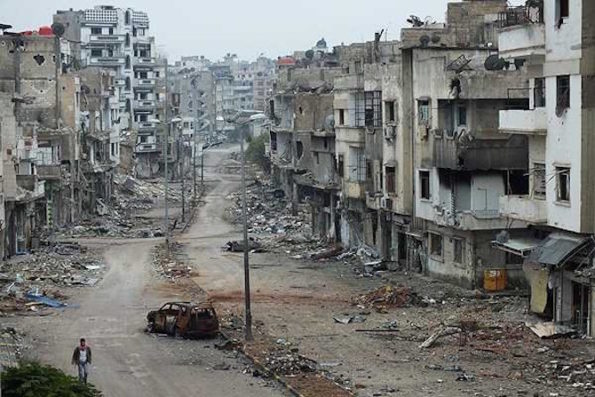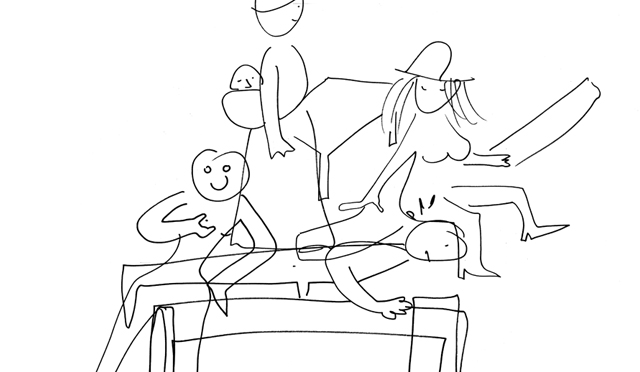Search
To search for an exact match, type the word or phrase you want in quotation marks.
A*DESK has been offering since 2002 contents about criticism and contemporary art. A*DESK has become consolidated thanks to all those who have believed in the project, all those who have followed us, debating, participating and collaborating. Many people have collaborated with A*DESK, and continue to do so. Their efforts, knowledge and belief in the project are what make it grow internationally. At A*DESK we have also generated work for over one hundred professionals in culture, from small collaborations with reviews and classes, to more prolonged and intense collaborations.
At A*DESK we believe in the need for free and universal access to culture and knowledge. We want to carry on being independent, remaining open to more ideas and opinions. If you believe in A*DESK, we need your backing to be able to continue. You can now participate in the project by supporting it. You can choose how much you want to contribute to the project.
You can decide how much you want to bring to the project.

We’ll begin by admitting that this is overwhelming, majorly overwhelming. There is no other way to write a text about it. We accept therefore that we can’t even catch a glimpse of the thread that someone is pulling on from a very distant, or not so distant place. And from this sincere and humble assumption of our insignificance, we haven’t nor have we wanted to let another day pass without putting into words what we need to transmit. We’ll continue by affirming that this text is written by the editorial board of A*DESK, because we consider it indispensable, for we believe in criticism that walks barefoot across the floor if its time.
These days, a video by the Syrian artist Nassough Zaghlouleh that ought to have been showing in the gallery L&B in Barcelona won’t be presented for fear of reprisals from Islamic State. On 17 November 2015, the poet and art curator, of Palestinian origin Ashraf Fayadh is condemned to death in Saudi Arabia. The charges: apostasy in his book of poems of 2008 and illicit relations with women. Fayadh was arrested in 2013 by the religious police, released with charges, arrested again in 2014 and sentenced to 800 lashes and four years in prison. After a petition calling for the revision of his case, the court that revisited his case rejected his testimony and condemned him to death. This is in addition to the young Ali Mohammed Al-Nimr, condemned to death by crucifixion for participating in a demonstration during the so-called “Arab spring” in 2012. And all those others we don’t know about.
On 13 November 2015, 129 people are killed in Paris, victims of a terrorist attack. These join the more than 200.000 people who have died victims of the Syrian civil war; that is wreaking destruction, of not just the vestiges of a more humanist past, but also in a tense present and devastated future. These are in addition to the victims of Boko Haram, the most lethal terrorist group. Or the 32.658 people who died in the world due to acts of terrorism in 2014 (figures from http://www.visionofhumanity.org/#page/indexes/terrorism-index/2014). These are in addition to the victims of the conflict between Palestine and Israel one of humankind’s greatest disgraces today, the living example of resentment and vengeance as a people(s).
Walter Benjamin wrote, “There is no document of culture that is not at the same time a document of barbarism”. Maybe the greatest current failure we can think about is the collective one, that of a civilization that doesn’t know how to coexist or tolerate each other, that uses religion (or economy) as projectile weapons and as arguments for intrusion, exclusion and dominance. As in all cases, it is necessary to analyse the failure to discern its causes, so that barbarism can be, from now on, confronted by the highest and most valiant Culture that we can generate amongst us.

A*DESK is a critical platform focused on publishing, training, experimentation, communication and dissemination in relation to contemporary culture and art, which is defined by transversality. The starting point is contemporary art, because that is where we come from and this awareness allows us to go much further, to incorporate other disciplines and forms of thought in order debate issues that are relevant and urgent for understanding our present.
"A desk is a dangerous place from which to watch the world" (John Le Carré)